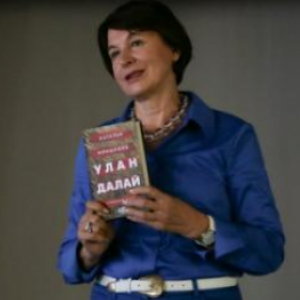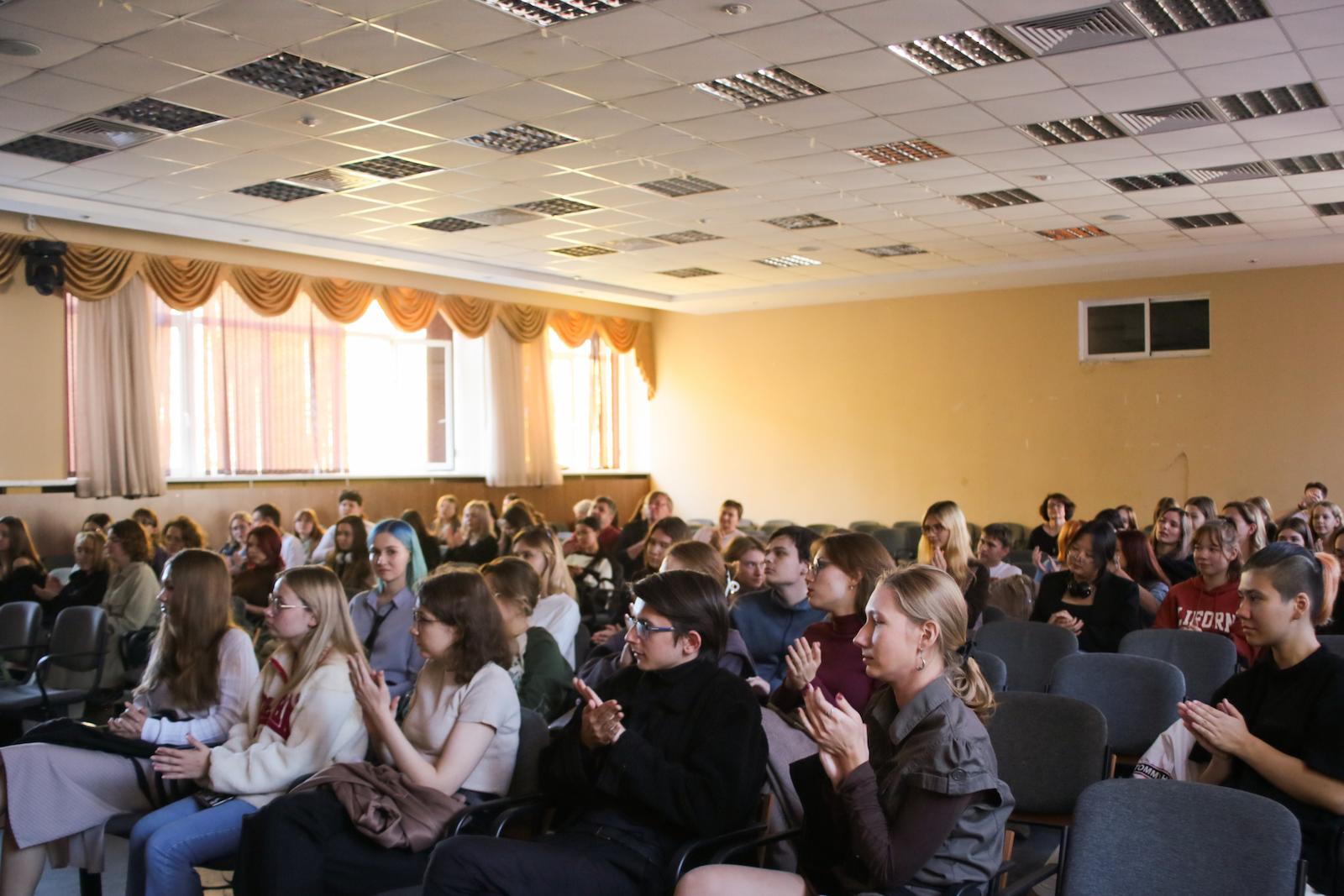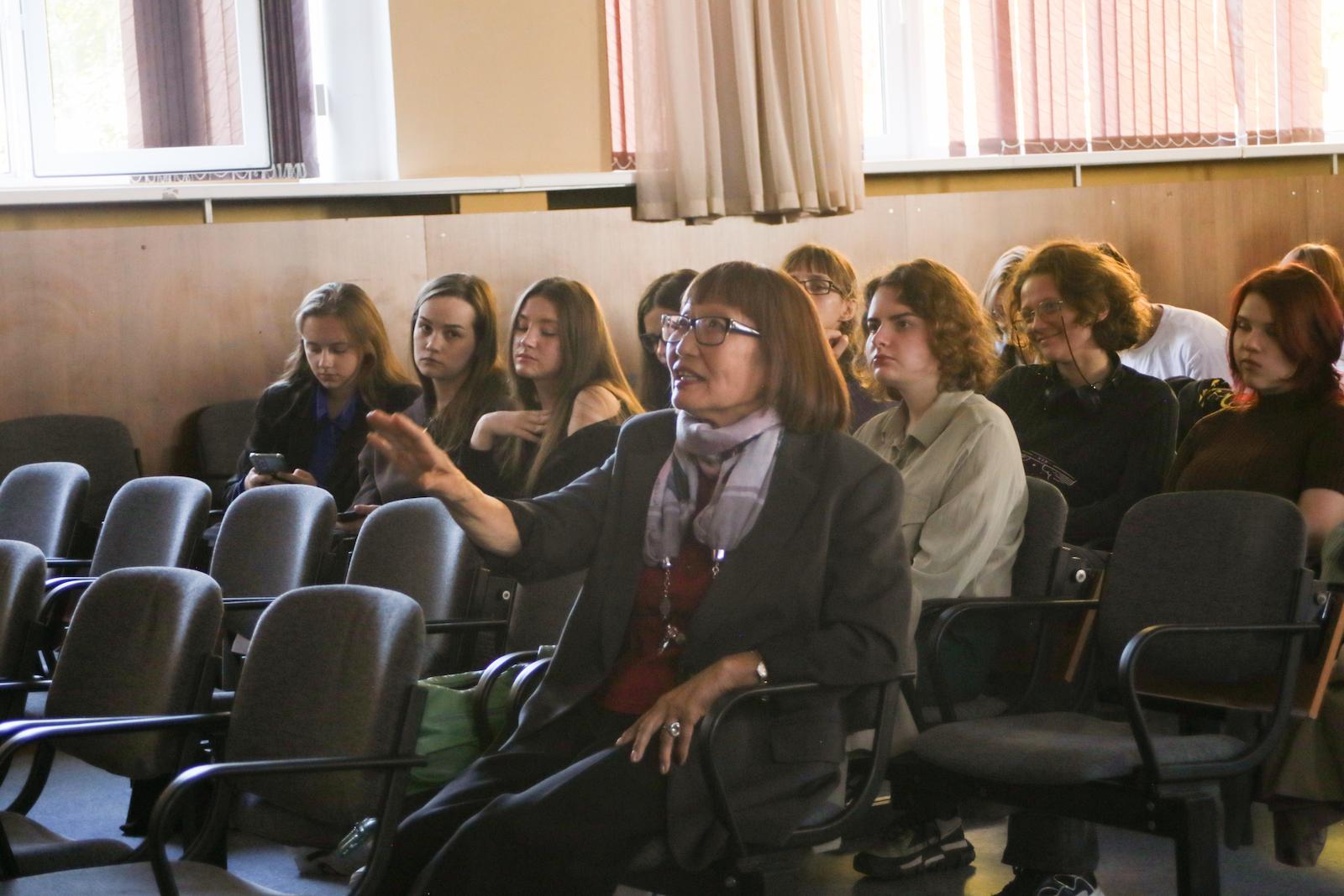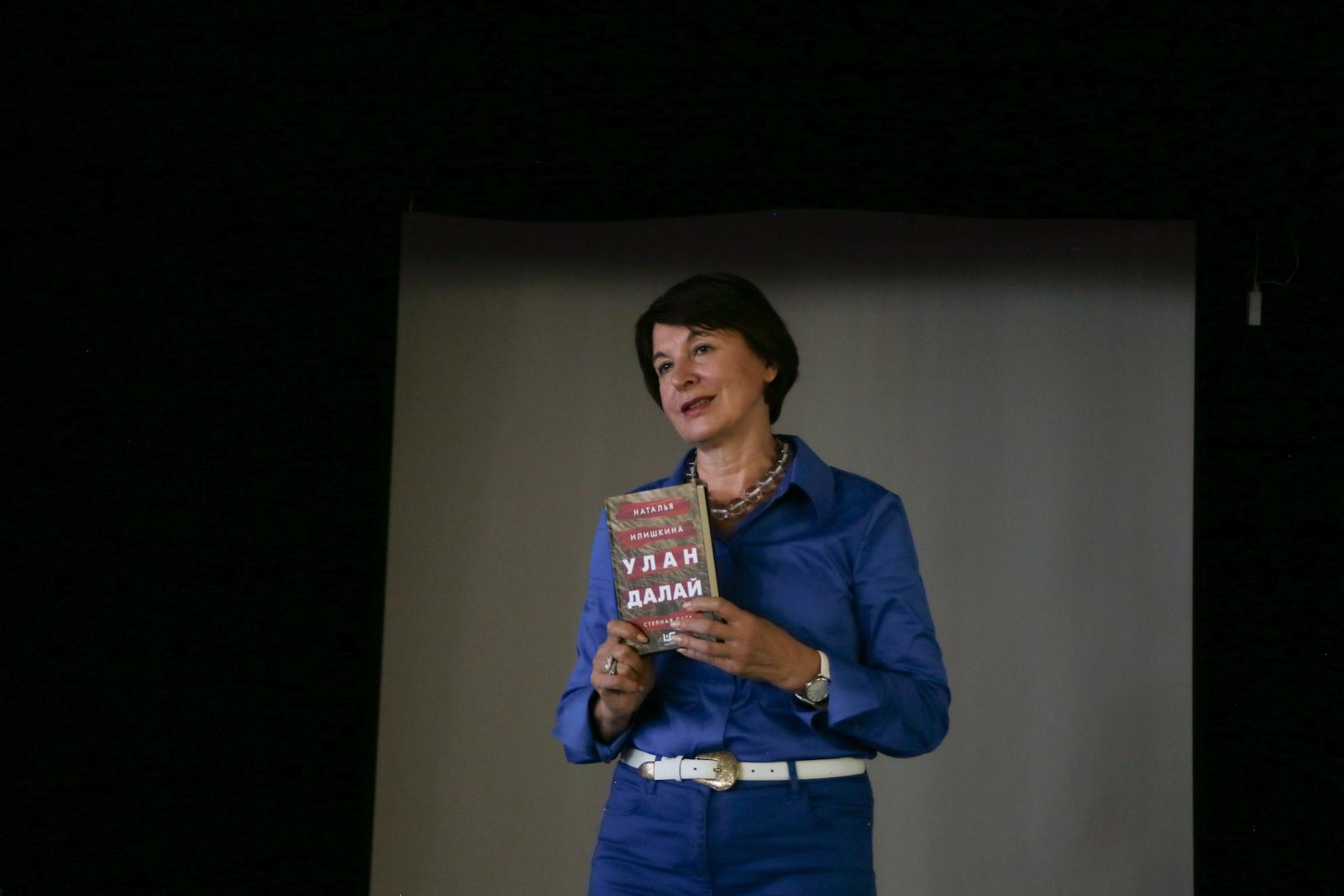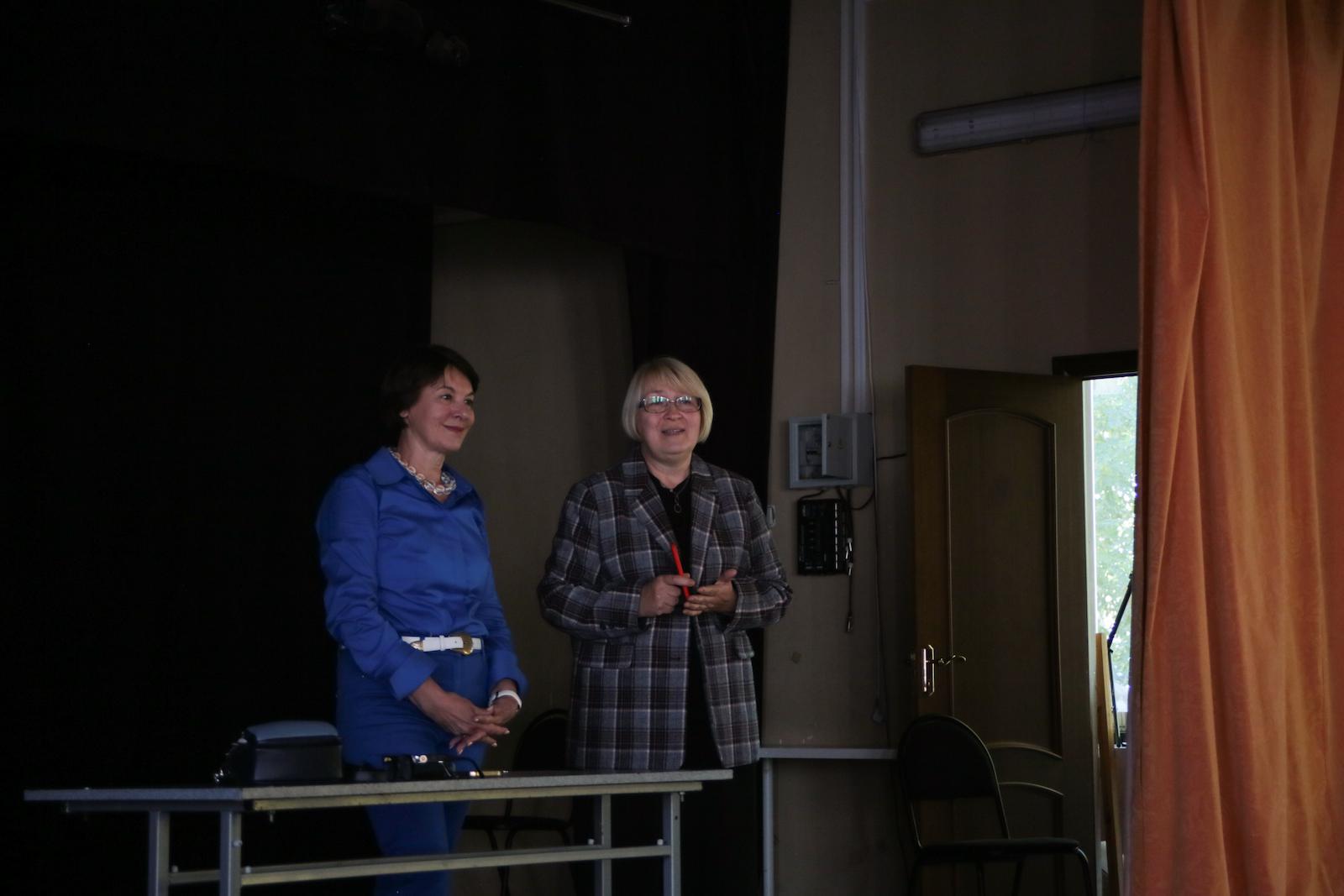Samara University held the meeting with the writer Natalia Ilishkina, author of the novel “Ulan Dalai. Steppe Saga” (short-listed for the Yasnaya Polyana 2024 Award, long-listed for the Big Book Award).
On September 30, a guest from Moscow, a speaker of the “Time to Read” Festival and a graduate of Kuibyshev State University Natalia Ilishkina visited the Faculty of Philology and Journalism.
Natalia began her lecture-story with arguments about the profession of writer and philologist, which is currently being transformed, affected by new forms of communication, artificial intelligence: “The most important thing is preserving a creative core in yourself, because it is obvious that AI will not soon have that creativity inherent in living people”, is the writer confident.
Natalia Ilishkina is a traveler; after graduating from KSU, she went to Moscow, and later life threw her into different corners of the Eurasian continent and eventually made her a polyglot who speaks English, Spanish, Japanese and Indonesian.
Revealing secrets of the beginning of writing, Natalia says that a writer must meet and grasp own plot, and in her life this plot “happened” when she was already about 50 years old. As an educated person, she was asked by her homeowners’ association to inform residents on the current situation, and this communication happened to be the very plot, and subsequently Natalia Ilishkina, in her own words, “entered literature through a broken sewer pump” under the nickname “Nata Hammer”. Under this nickname, she wrote a number of satirical novels: ““Golden Domes” HOA”, ““Udelnaya Rossiya” LLC”, “Chess Corporation”, which the writer calls comics, because they are richly illustrated.
The writer dedicated her novel “School.Dot.Ru” to one of her daughters. Natalia told about this text in detail. For Natalia Ilishkina, it is incredibly important to work with the word and with the energy and power that it possesses; the author shared her prophetic predictions that happened in this novel. The problem of misunderstanding the same process by different participants in the events was realized by her through working with different viewpoints and through assessing the events by different characters.
Natalia says about the writing process that the word is incredible power, no doubt about it, and, moreover, any information will “come” to the writer, if it is needed. For her yet-to-be-released novel, the writer needed to know how the court session was going on, how the hospital was arranged, and life threw her at court and at hospital – both as a nursing visitor and as a patient.
Starting her novel about the four-century history of a Kalmyk family, about the history of one family living in a huge country and facing tragic historical events, such as World War I, the Civil War, the repressions of the 1930s, the Great Patriotic War and deportation, Natalia studied biographies and the Kalmyk epic, asked her Kalmyk father-in-law, but it was extremely difficult for her to begin writing. However, in the pandemic year, being locked in the country and having a whole library on the history of the Mongols and Kalmyks at hand, she began working on the novel.
The meeting was attended by Lyubov Borisovna Chetyrova, Doctor of Philosophy, Professor of Samara University, who, being an ethnic Kalmyk, thanked the author for writing the text reflecting the people’s life inside the multinational country in its critical epochs.
Natalia Ilishkina concluded her story with performing the free-verse to be written by her for courses at the Creative Writing School. There were also some questions asked by students. They were interested in how the writer copes with the fear of “blank sheet” and how she “enters” the workflow of creating a text, how she selects material and how she works with sources, asked about her preferences in reading and favorite writers. They were particularly interested in creating book covers and “publishing tricks”. At the end of the meeting, Natalia Ilishkina presented the audience with postcards inscripted “Ulan Dalai” in the Kalmyk language.
Photo of Maria Gubanova, a 3rd year student of the area “Journalism”
